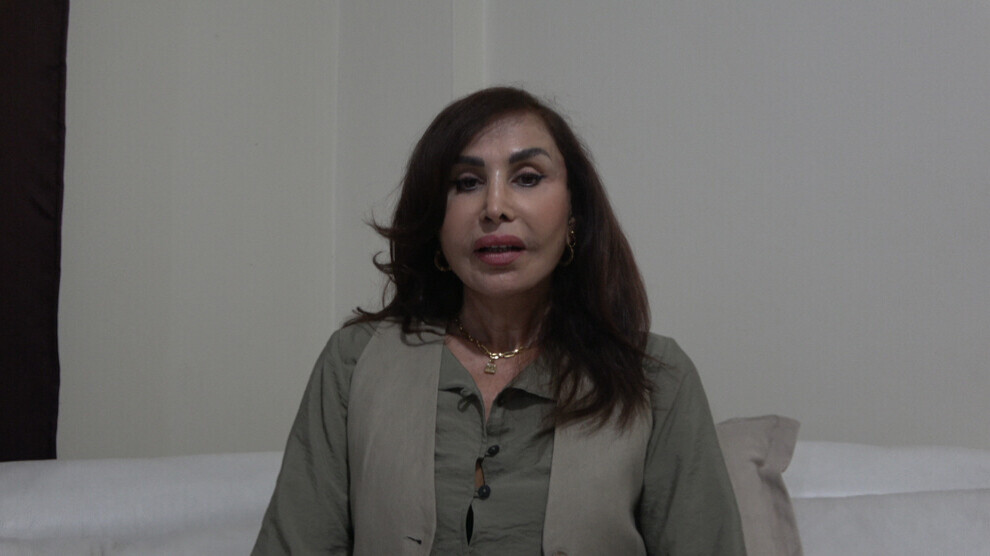Prof. Huda Rizk: Abdullah Öcalan’s freedom key to lasting peace
Prof. Huda Rizk emphasized that true peace demands shared responsibility, women’s active role, and equal rights for all communities. She warned that ignoring Abdullah Öcalan’s calls for democracy undermines prospects for lasting stability in the region.

Amal Muhammed
Beirut – The peace process remains an extremely complex and sensitive issue due to deeply intertwined political, social, and historical dynamics. Despite numerous initiatives aimed at ending conflict and ensuring stability, the Turkish state’s failure to demonstrate the political will required for lasting peace stands out as the greatest obstacle to progress. Abdullah Öcalan’s perspective of a democratic nation—based on pluralism, gender equality, and nonviolent resolution—is described as a vital foundation for sustainable peace. Yet the systematic disregard of these calls by the Turkish state continues to weaken hopes for a solution and raises serious concerns about the future of peace.
‘Women’s active participation must be ensured’
Professor of political sociology Huda Rizk, in her remarks to our agency, drew attention to the decisive role of women in social transformation. She underlined the need for a common framework in which all ethnic, religious, and sectarian components can coexist for lasting peace and stability. Rizk stressed that women’s struggle in this process is not a temporary experience but a deeply rooted resistance that has proven its impact on social change. “Without the active participation of women, neither a developed society nor a genuine renaissance can be spoken of,” she said.
‘The real need is for women to have equal rights’
Referring to Abdullah Öcalan’s evaluations of women’s social role, Huda Rizk stated: “Abdullah Öcalan emphasizes that women are the cornerstone of society, and that women must be addressed not only through symbolic or religious representations but through their lived realities.” Pointing out that women have still not fully gained all their rights in both social and political spheres, Huda Rizk stressed that symbolic quotas or official privileges are insufficient. She underlined that the real need is for women to possess fundamental rights, guaranteed by genuine and inclusive policies that ensure women are treated equally with men in political and social arenas.
‘Both sides must take responsibility’
Huda Rizk emphasized that Abdullah Öcalan has given women their rightful place in society and politics, continuing to develop new and influential ideas on women’s and Kurdish rights despite his long years of imprisonment. Huda Rizk noted that Öcalan views disarmament as an important step toward ending war. For lasting peace, she said, responsibility must lie with both sides, especially the Turkish state, which must recognize the Kurds’ political, social, and constitutional rights.
‘Securing freedom is an important step’
Huda Rizk stressed that Abdullah Öcalan’s release should be seen not merely as a personal development but as an important step toward improving social life in the region. Huda Rizk underlined that Öcalan’s ongoing imprisonment does not contribute to the peace process. In conclusion, Huda Rizk called on the Turkish state to take this process seriously and create the necessary conditions for lasting change.
